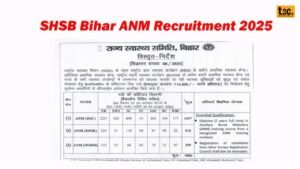May 2025 Week 2 Current Affairs for UPSC, SSC & Banking

Prepare for competitive exams like UPSC, SSC, and Banking with the latest current affairs for May 2025. This week’s updates cover critical developments, from the Supreme Court’s governor bill ruling to revised e-waste rules, offering essential insights for exam success. Dive into these key topics to boost your general knowledge.
Supreme Court Sets Governor Bill Deadlines
In May 2025, the Supreme Court mandated time limits for governors to act on state bills, addressing legislative delays.
-
Ruling: Governors must decide within a reasonable timeframe under Article 200.
-
Governance Impact: Enhances efficiency and clarifies federal roles.
-
Significance: Ensures judicial oversight and speeds up state policy implementation.
Exam Tip: Focus on India’s AI initiatives and job impact for science and technology questions. Source: UNCTAD Report 2025.
Telangana Pioneers SC Sub-Categorisation
In May 2025, Telangana became the first state to implement SC sub-categorisation for reservations, following a 2024 Supreme Court ruling.
-
Policy: Divides SC quota to benefit marginalized groups.
-
Social Impact: Improves access to education and jobs for underprivileged SC communities.
-
Challenges: Requires accurate caste data and faces community opposition.
New Aadhaar Law Aligns with DPDP Act

A new Aadhaar law proposed in May 2025 aligns with the Digital Personal Data Protection (DPDP) Act 2023 to enhance privacy.
-
Goal: Updates Aadhaar Act, 2016, to meet DPDP privacy standards.
-
Impact: Strengthens user data protection and digital service trust.
-
Challenges: Needs robust enforcement and public awareness campaigns.
Exam Tip: Understand the veto types and Article 200 for polity questions in UPSC and SSC exams. Check our Polity Current Affairs for related updates.
Vibrant Villages Programme Phase 2 Launched
Phase 2 of the Vibrant Villages Programme began in May 2025 to develop border villages in northern states like Arunachal Pradesh and Ladakh.
-
Focus: Builds roads, schools, and health units along borders.
-
Strategic Impact: Enhances security and promotes tourism-based livelihoods.
-
Challenges: Harsh terrain and sustained funding needs.
India Pauses Indus Waters Treaty

In May 2025, India paused the Indus Waters Treaty with Pakistan due to bilateral tensions, particularly over dam disputes.
-
Treaty: Allocates river waters since 1960 via World Bank mediation.
-
Strategic Impact: India reassesses water control, escalating tensions.
-
Challenges: Risks international criticism and regional instability.
Pakistan Suspends Simla Agreement

In May 2025, Pakistan suspended the 1972 Simla Agreement, worsening India-Pakistan relations.
-
Purpose: Set a post-1971 war framework for peaceful dispute resolution.
-
Impact: Deteriorates diplomacy and increases conflict risks, especially over Kashmir.
-
Context: Follows India’s Indus Waters Treaty pause.
India Closes Attari-Wagah Border
In May 2025, India shut the Attari-Wagah border with Pakistan over security concerns, disrupting trade.
-
Context: Driven by heightened bilateral tensions.
-
Strategic Impact: Enhances border security but affects local trade.
-
Challenges: Economic losses for traders and increased cross-border animosity.
6th BIMSTEC Summit Strengthens Regional Ties

The 6th BIMSTEC Summit in May 2025 focused on trade and connectivity among Bay of Bengal nations, including India and Bangladesh.
-
Outcomes: Bolstered India’s Act East Policy and regional cooperation.
-
Strategic Impact: Counters China’s regional influence.
-
Challenges: Diverse priorities and funding constraints hinder consensus.
India Ends Bangladesh Transshipment
In May 2025, India terminated transshipment facilities for Bangladesh, impacting trade logistics.
-
Context: Reflects a shift in regional diplomacy.
-
Economic Impact: Raises Bangladesh’s export costs and strains ties.
-
Challenges: Risks regional cooperation; Bangladesh seeks alternative routes.
India’s E-Waste Rules Spark Backlash

India’s 2025 e-waste rules, setting recycling prices (₹22/kg for electronics, ₹34/kg for smartphones), faced opposition from firms like Samsung.
-
EPR: Enforces extended producer responsibility for recycling.
-
Industry Impact: Increases costs and compliance challenges.
-
Environmental Goals: Targets a 43% recycling rate increase for sustainability.
Flue Gas Desulphurisation Norms Reconsidered
In May 2025, experts proposed revising Flue Gas Desulphurisation (FGD) mandates for coal plants due to low sulphur content in 92% of Indian coal.
-
Rationale: FGD raises CO2 emissions and resource use.
-
Policy Impact: Limits FGD to high-sulphur plants, saving power and water.
-
Context: Balances acid rain concerns with climate goals.
Exam Tip: Note the project’s healthcare applications and genetic diversity for science and health-related questions. Explore our Current Affairs section for more.
Conclusion
These current affairs for May 2025 are vital for competitive exam aspirants. From judicial rulings to regional diplomacy, these updates shape India’s policy landscape. Explore our exam prep resources and share your insights in the comments to enhance your preparation!
Don’t miss out! Learn how student chapters can provide networking opportunities and professional growth. Click to read and join our WhatsApp community!
Not sure which career to choose? Our professionals can guide you. Book your counselling session now on Mytagapp.com!









